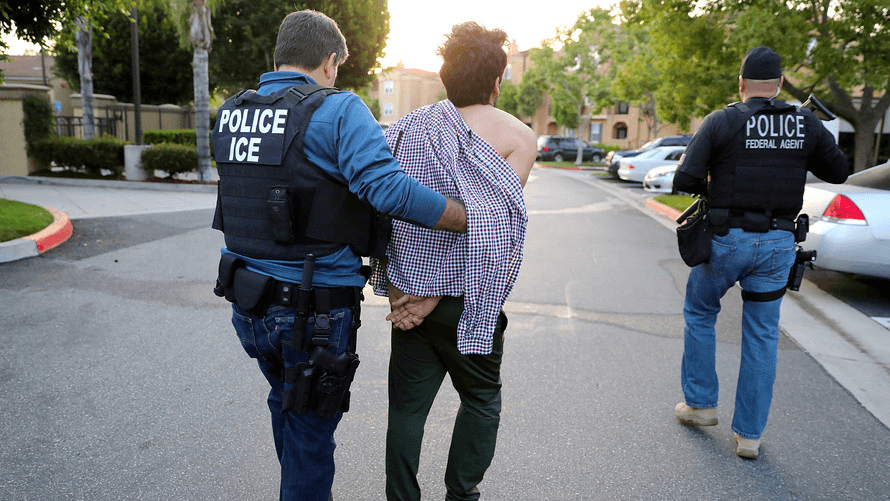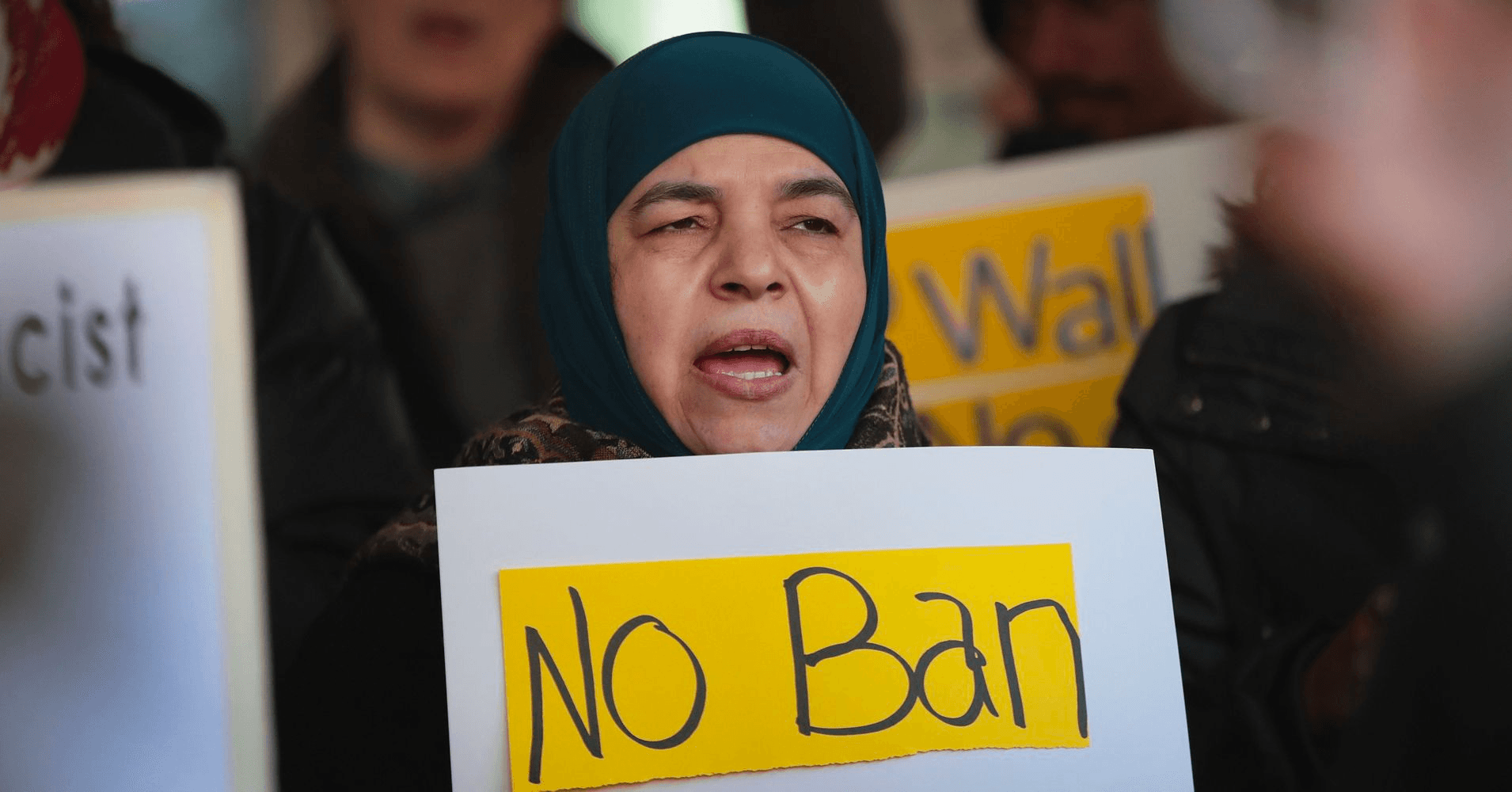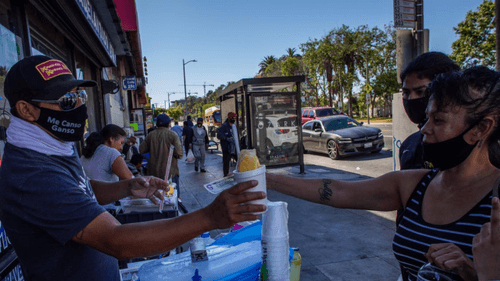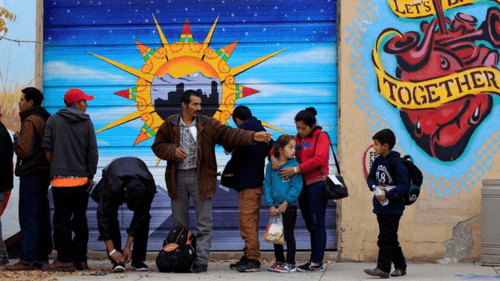History

- 1907-1924|
Early 20th Century Immigration Restrictions
In the early 20th century, a wave of anti-immigrant sentiment in the United States led Congress to impose several restrictive immigration laws.

- 2003-2014|
Foundations of ICE
In 2003, the Department of Homeland Security expanded to include Immigration and Customs Enforcement (ICE), a powerful federal agency.

- 1986|
Immigration Reform and Control Act (IRCA)
In 1986, President Reagan signed the Immigration Reform and Control Act, a bipartisan agreement to address illegal immigration.

- 1965|
Immigration and Nationality Act of 1965
In 1965, President Johnson signed the Immigration and Nationality Act, overhauling decades of restrictive immigration laws.
Introduction
The Crime Debate
The United States has a long history of enacting strict immigration policies, believing that immigrants – especially undocumented ones – are prone to criminal behavior. This belief has persisted among some Americans since the Age of Mass Migration began in the mid-1800s. But is this sentiment based in reality? While a comprehensive federal database does not exist, studies have projected crime rates based on the undocumented population numbers in Texas. They show that undocumented immigrants commit fewer crimes compared to U.S. citizens. Not only that, but as immigration increases, the violent crime rate generally goes down. On the other hand, the conservative argument is as follows:
- All immigrants who have illegally crossed the border have committed the crime of crossing illegally.
- Any crime committed by an immigrant that crossed illegally should have been prevented.
- The severity of the crimes - such as drug trafficking and murder - are greater indicators than the quantity of crimes.
Republicans and Democrats have tried to reform America’s immigration laws with relatively little success for decades. However, these policy reform efforts will likely continue and will significantly impact the over 40 million immigrants living in the United States as of 2020.

Increasing crime rates is one of the main arguments against a more progressive immigration agenda, especially when it comes to undocumented immigrants. In January 2019, President Trump stated, “Over the years, thousands of Americans have been brutally killed by those who illegally entered our country, and thousands more lives will be lost if we don’t act right now.” Unfortunately, no national database compares crimes committed by immigration status, and only Texas maintains a state database.
However, some studies have examined the impact of immigration on crime rates across the United States.
- The Proceedings of the National Academy of Sciences (PNAS) analyzed crime trends in Texas from 2012 to 2018. Relative to undocumented immigrants, U.S.-born citizens are over two times more likely to be arrested for violent crimes, 2.5 times more likely for drug crimes, and over four times more likely for property crimes.
- The CUNY Institute found that when immigration increases, violent crime rates generally go down. Areas with a high concentration of foreign-born people do not have more violent crime than areas with lower concentrations.
- The American Journal of Public Health found that increased undocumented immigration was significantly associated with reductions in drug arrests, drug overdose deaths, and DUI arrests.
Those who support more stringent border security argue that even if undocumented immigrants did commit fewer crimes, those crimes should not have happened in the first place if our immigration system was working correctly. In Texas, from 2017-2018, undocumented immigrants were convicted of 16,275 crimes. While that is less than legal immigrants or native-born Texans, conservatives argue that the comparative crime rate is not significant; the net is. In their view, these are 16,275 preventable crimes. Below you will read about instances where criminality has driven modern immigration policy.
Executive Order 13769

During his campaign to become president, Donald Trump was an outspoken advocate for stricter immigration laws. Illegal immigrants, he argued, brought increased crime to the United States. Yet, in promoting his immigration policies, Trump often focused on a specific type of crime: terrorism. He repeatedly suggested that terrorists were pouring across the southern border into the United States. One of his first executive orders was Executive Order 13769, which he argued would address this problem. It barred entry and visas from seven predominantly Muslim countries - later adding Venezuela and North Korea - based on a list compiled by the Obama administration. Titled “Protecting the Nation From Foreign Terrorist Entry Into the United States,” the President said it would prevent…
- The entry of Syrian refugees and nations from a list who “perform ‘honor’ killings,
- Other forms of violence against women
- The persecution of those who practice religions different from their own
- The persecution of those who would oppress Americans of any race, gender, or sexual orientation.”
President Trump later signed a new order exempting Iraq after his first order faced several federal court challenges. The move sparked outrage among the Left, who decried it as a discriminatory, Islamophobic Muslim ban. On the day of his inauguration, President Biden repealed the travel ban, among other related executive immigration policies.
Kate’s Law

In June 2017, the Republican-controlled House of Representatives passed two immigration laws with the support of President Donald Trump: Kate’s Law and the No Sanctuary for Criminals Act. Kate’s Law imposes stricter sentences on convicted criminals that attempt to re-enter the country illegally and passed with 24 Democrats joining all but one Republican in the House. Throughout his 2016 presidential campaign, where he made immigration a signature issue, then-candidate Trump frequently told the story of Kathryn Steinle, who Kate’s Law is named after. In 2015, Juan Francisco Lopez Sanchez, a repeat felon and five-time deportee, shot and killed Steinle in San Francisco. The shooting quickly drew the ire of Republican presidential candidates, particularly Trump, who said it illustrated the United States’ weak border and the dangers of undocumented immigrants. Though the White House championed the bill, the Senate did not bring it up for a vote. Even if they did, Senate Democrats would have likely used the filibuster to block it.
The No Sanctuary for Criminals Act, takes away grants from localities with so-called sanctuary policies that make it harder for Immigration and Customs Enforcement (ICE) to locate and arrest immigrants for deportation. Unlike Kate’s Law, this bill passed in a largely party-line vote, with three Democrats supporting the measure and seven Republicans voting against it. Republicans argue that “sanctuary cities” harbor violent undocumented immigrants and prevent federal authorities from enforcing existing immigration laws. As with Kate’s Law, the Republican-controlled Senate did not act on the bill, potentially anticipating a Democratic filibuster.
Discussion Questions
- What was your initial reaction to learning that US-born citizens are more likely to be arrested for crimes than undocumented immigrants?
- What is your opinion on the narrative that even if undocumented immigrants don’t contribute as much to crime, they should not have happened in the first place?
- How should we best tackle illegal immigrants committing crimes?
Terms
Immigrant. A person who migrates to a new country, usually for permanent residence.
Nonimmigrant. “Nonimmigrants are persons admitted to the U.S. temporarily for a particular purpose, such as education, temporary work, business, or travel. Once the time allowed for their visit ends, nonimmigrants must leave the country and return home.” (WHGC Law Firm)
Undocumented Immigrant. An undocumented immigrant is a foreign-born person who doesn't have a legal right to be or remain in a country. (Nolo) Is “undocumented immigrant” the same as “illegal alien”? In theory, yes, but neither are terms used in U.S. immigration law; they’re jargon. The United States Border Protection Service uses the term “alien” to define foreign individuals who have entered the country. The immigration reform bill proposed by President Joe Biden would remove the word “alien” from U.S. immigration law and replace it with “noncitizen.”
Refugee. “A person who flees their country due to persecution or a well-founded fear of persecution because of race, religion, nationality, political opinion or membership in a particular social group. Refugees are eligible for federal resettlement assistance.” (NCSL)
Lawful Permanent Resident (LPR). “An LPR is an immigrant who has been lawfully accorded the privilege of residing permanently in the United States. Lawful permanent residents are granted admission to the United States based on family relations or job skills. Refugees and asylees may adjust to LPR status after one year of continuous residence.” (NCSL)
Naturalization. The process by which a foreign-born individual becomes a citizen of the United States. Immigrants must be at least 18 years old; have been lawful permanent residents of the United States for five years (three years if married to a U.S. citizen); demonstrate a basic knowledge of English, American government, and history. (FindLaw)
Visa. “A visa is a permit to apply for entry into the United States. Visas can be designated as immigrant or nonimmigrant depending on the visa holder's purpose for entry.” A visa doesn't guarantee entry into the U.S. but merely allows a foreign national to enter a U.S. city where their status is determined. (WHGC)
Green Card. “A foreign-born person who is not a citizen or national of the United States but who has legal resident status must have an Alien Registration Card (I-551 identification card), also known as a green card. The Alien Registration Card serves as proof of the immigrant's identity and confirms their status as a legal permanent resident.” (WHGC)
Narratives
Left Narrative
Despite what you hear on news channels like Fox, undocumented immigrants do not increase crime rates in our country. In fact, studies show that immigrants are less likely to commit crimes than native-born citizens, especially if they are undocumented. These people are simply coming into our country and looking for a better and safer life; why would they risk that by committing a crime?
Right Narrative
While some studies claim that American citizens commit more crimes than illegal immigrants, any crimes committed by illegal immigrants should not have occurred in the U.S. according to our laws. At the most basic level, every illegal entry is a crime in and of itself. America cannot simply look the other way on certain crimes. There are a myriad of stories of Americans killed because South American gang violence has found its way to the United States.
Bipartisan Narrative
Classroom Content
Browse videos, podcasts, news and articles from around the web about this topic. All content is tagged by bias so you can find out how people are reacting across party lines.

Undocumented immigrants may actually make American communities safer – not more dangerous – new study finds
- Article •
- 9/27/2020

9 Things You Need To Know About Illegal Immigration And Crime
- Article •
- 9/22/2016

For the Last Time, Here’s the Real Link Between Immigration and Crime
- Article •
- 1/6/2019

Criminal Immigrants in Texas in 2017: Illegal Immigrant Conviction Rates and Arrest Rates for Homicide, Sex Crimes, Larceny, and other crimes
- Other •
- 7/27/2019

Illegal Immigration Linked with Organized Crime, Border Expert Says
- Podcast •
- 2/29/2021

How does immigration affect crime in the U.S.
- Video •
- 4/13/2021

Immigrant Crime Rates
- Video •
- 1/22/2019
